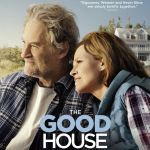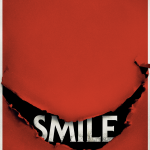In the 1930s, three friends witness a murder, are framed for it, and uncover one of the most outrageous plots in American history.
Chuck says:
Ambitious, stimulating, and inspirational, David O. Russell’s “Amsterdam” takes a little-known historic event and uses it as the basis for a seemingly convoluted mystery that winds up being a paean to friendship and patriotism. Sporting perhaps the best cast of the year and a dense production design that immerses the viewer into America of the 1930’s, the film tasks the audience with remembering its narrative thread as it goes down various rabbit holes, embarks on narrative tangents, and utilizes flashbacks throughout. At times, this seems pointless and self-indulgent, yet the viewer’s patience is rewarded in the end, the film proving to be a moving and fascinating piece of cinema.
In the first of many locations across many eras, we see Dr. Burt Berendsen (Christian Bale) employ one of his many methods of experimental medicine. Employing crude prosthetics to help maimed WW I vets feel whole, he also makes his own pain relievers he dispenses freely to those in need, himself always the first recipient of his latest concoction. Through flashbacks we learn of his own wartime experiences, how he lost his eye and most importantly, how he met Harold Woodman and Valerie Voze (John David Washington and Margot Robbie). We see how their experiences in post-war Amsterdam helped them forge an unbreakable bond, one that’s put to the test when Burt and Harold are falsely accused of murdering their former commanding officer, General Meekins (Ed Begley Jr.)
In their efforts to clear their names, the pair cross paths with a wide variety of eccentrics. Valerie’s brother, Tom (Rami Malek) and his wife, Libby (Anya Taylor-Joy), seem to be hiding something behind their respectable façade, Henry Norcross and Paul Canterbury (John Shannon and Mike Myers) contend they’re just businessmen but there’s something fishy about them, while Burt’s wife, Beatrice (Andrea Riseborough) changes mood on a dime. Then there’s the two detectives (Mathias Schoenaerts and Alessandro Nivola) on their tails, Irma (Zoe Saldana) an autopsy specialist with eyes for Burt and Taron (Timothy Olyphant), a wild-eyed killer who pops far too frequently. Oh, and I can’t forget General Gil Dillenbeck (Robert De Niro), who’s been approached by a far-right group looking for help in overthrowing the government.
The plot thread involving the attempted coup is based on fact, a conspiracy exposed in 1933 by General Smedley Butler who had been approached to participate in what was later dubbed the Business Plot. Russell builds his story around this, using conjecture and imagination to weave this tapestry, one that speaks to our idealized vision of what America should be. A sense of generosity runs through the movie, as the central trio show a loyalty to each other that’s admirable and a kindness to others that’s noble.
The plight of veterans is at the core of the many sincere acts of benevolence we see. Russell pulls no punches in showing us the wounds these men suffer from, or the extreme measures taken to heal them. While these moments are graphic, they are never gratuitous, rendered in a way that drives him the horror of war and the unfair burden those we send to fight it must bear. That Valerie, a nurse, saves the pieces of shrapnel she pulls from these men to make tea sets and pieces of art to create something beautiful from their suffering is one of the movie’s most poignant conceits.
Russell’s clever script and the fine performances from all involved keep us engaged throughout. One witticism after another is thrown around, while the turns of the plot prove inspired and intriguing . As for the performers, it’s obvious all involved have stepped up their game, each actor given a moment to shine but never overshadowing the other. The ensemble coheres in a way that’s a delight to behold.
Without question, this is Russell’s warmest, most poignant work. Amidst all the narrative switchbacks, he sincerely espouses the virtues of camaraderie without resorting to any maudlin moments or cheap theatrics. Some have found “Amsterdam” cumbersome and confused. I couldn’t get over how interesting and fascinating it proved to be. That it serves as a vehicle for championing the virtues of the Golden Rule, only adds to its worth.
3 1/2 Stars




